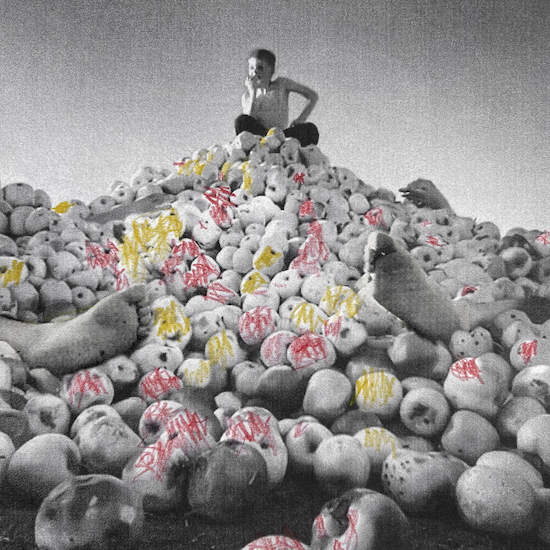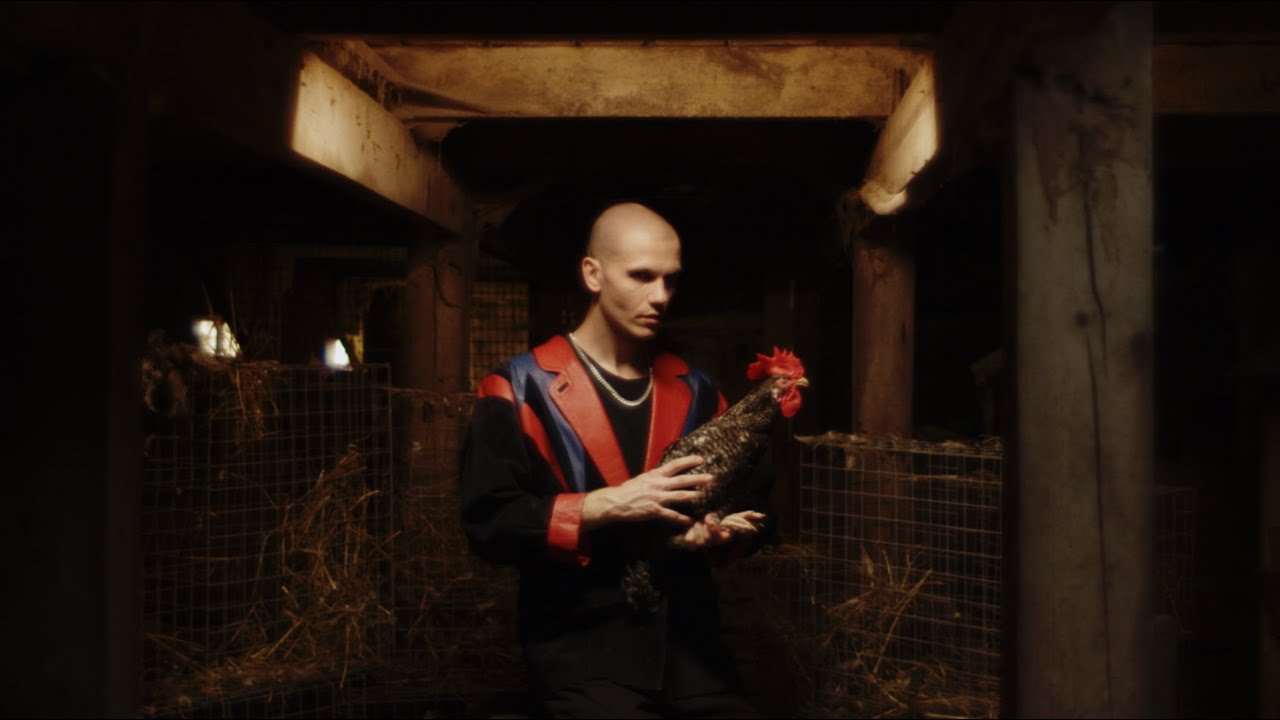The St Petersburg band Shortparis have built up quite a name for themselves. Not having much time for orthodox notions of pop, they have, over the last few years, taken the artform’s props and fancies to the brink, there to wreck and remould. At times this approach has meant their recorded music has a slightly undirected or overzealous feel to it. But even those whose Russian extends to ‘да’ and ‘нет’ felt, on hearing records such as 2017’s Пасха (‘Easter’) and 2019’s Так закалялась сталь (‘Thus the Steel Was Tempered’), that Shortparis were making something special. For those lucky enough to see them, the band’s live shows were a counterblast to the reheated spin and flabbiness of the gig circuit. Certainly, Shortparis became a part of the ever-revolving carnival of human capital that the old touring era represented. But onstage they were unique, able to balance a form of almost feudal arrogance and a reckless form of vulnerability; total attitude made flesh. Until we see them again we have to content ourselves with probably their best work to date, Яблонный сад (Apple Orchard).
The pandemic is often cited as a full stop moment for those in the pop music world, marking the end of many assumptions and practices. Whilst undoubtedly true, grosso modo, this observation doesn’t cover the whole story for every artist. On listening to Яблонный сад it seems Shortparis, a band with a totemistic sense of history, have turned their unblinking gaze on that short period when they blazed through Europe and worked out what they can salvage from it to catch us out again, through this record. It seems they have taken their all encompassing live shows as a template for a new, sleeker, more definitive recorded sound.
There is a noticeable sense of control and cohesion on Яблонный сад. The music is polished and considered. It is maybe more carefully constructed, but no less powerful for that. This may be in part due to a noticeable foregrounding of the melody lines. Indeed, their music has often been based on a very simple melody; theirs are like village songs, ones sung over ages. And Nikolai Komyagin’s arresting voice is one able to inform the overall mood of the music. Both these factors allow the tracks to be completely stripped of all instrumentation at certain points, which allows tension to ebb and flow and to shake down into something else. ‘Наше Дело Зрело’ (roughly, ‘A Mature Business’) is a case in point, the melody able to both morph into a chorus and set up a track that blossoms out into pure theatre. Another trick that informs the whole is the taut choreography. Shortparis script a spectacle for listeners; it reminds me sometimes of Japanese Kabuki theatre: the percussive elements resembling the comings and goings of actors in play. Take ‘KоKоKо’ (roughly, ‘La La La’), a typical Shortparis playground melody, reminiscent of their earlier work. Here, we can marvel in the band’s trademark knack of creating a workable vehicle out of very few parts. The kick up of the rhythm around the three minute mark is a brilliant trick, refreshing the whole like a rain shower after a dusty ride.
The band members have also (obviously, given the last 18 months), spent time thinking about their world and this collective brainstorming has lent a lugubrious feel to Яблонный сад. Very little is explicit, though I am reliably informed the album has been in part inspired in part by Russia’s Silver Age, which ended during the chaos of the Civil War. This may be so but for those on the outside listening in there are few obvious links with the likes of Aleksandr Blok. Maybe some of Blok’s apocalyptic dreams find a musical echo here, maybe the suggestive cover refers to it: it’s hard to say.
We can say that ‘двадцать’ (‘Twenty’) references the wages paid out in the Novokuznetsk Steel Plant in Siberia. Elsewhere, the slow burning opening pair, ‘3олото’ (Gold) and ‘Скука’ (Boredom) are subdued and melancholy, their power shown in how they both regulate tension and tone. More tease is given with ‘Говорит Москва’ (‘Moscow Speaking’); a masterful exercise in mood music. The blood pressure really starts to rise, courtesy of a marvellous coming together of a melody line that strains at the leash and what sounds like the kitchen sink being thrown out of the window. Mere speculation of course, but the track could be seen as a psychological portrait of a city that never rests.
If there is one thing Shortparis is brilliant at, then, it is invoking atmosphere. There are many tricks used on Яблонный сад, including those mentioned above. Another is the fact that many of the tracks end on a quiet or simple note, with Nikolai Komyagin singing unaccompanied. It suggests to the listener that, however Shortparis embellish these songs, each piece has to be dragged back to a central, incontestable, uncomfortable point; points that the band, for all their artifice and bombast in between, may not be able to escape from. These quiet endings add to the record’s feeling of ingrained sadness, much more so than their other releases.
Of course, there are many expansive and lyrical moments to enjoy, most noticeably the title track which is a brilliant piece of theatre, amplified grimoire in excelsis. Yet again the inevitable kick off is regulated, the pump and press of the beat measured out over tone and textures. Watch out for a brilliantly theatrical drop by the end.
Now and again we get a more cinematic sound that draws from the Anglo-American tradition. ‘Половина’ (‘Half’) feels like an upgrade of Associates’ ‘Q Quarters’. The piano stabbing out a sparse map for the other instruments, allowing a set of melodic, almost baroque counterpoints of guitar and samples. The synth wash that sometimes appears to lift the track is pure New Gold Dream Simple Minds, too. For its part, the subject of ‘Любовь Моя Будет Тут’ (‘My Love Will Be Here’) seems to be living under the pier head, looking out over the water. Again the feeling of theatre is very strong, maybe down to Komyagin’s tortured ramblings.
But it’s not all beautiful bathos; ‘Эта Ночь Непоправима’ (roughly, ‘This Night Is Irreparable’) is a moment that points to at the more lunar, “Gabriel Ernest” aspects of the band. Watch out for the arrival of a piano stab, which works brilliantly against the atonal backdrop, almost collapsing the rest of the instrumentation with a deft press of the keys. Still, Яблонный сад is their most “classical” record; if not as savage as their earlier works, it’s undoubtedly a magnificent and stately collection of songs. This is a special band. Greatness awaits.




